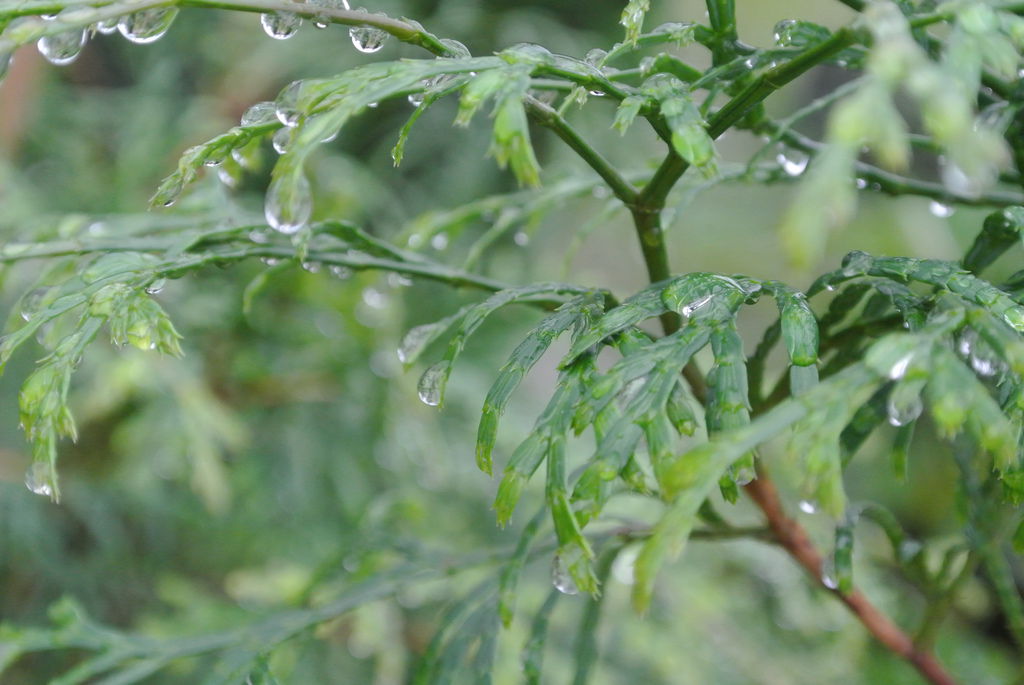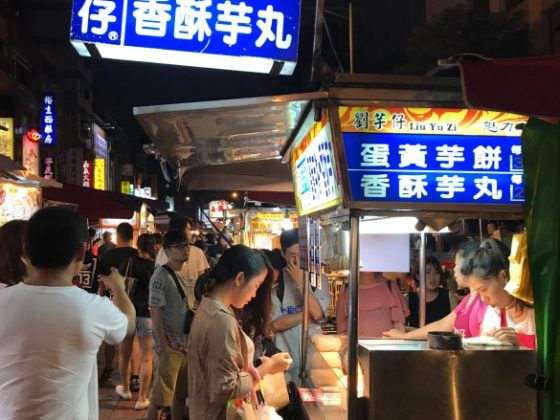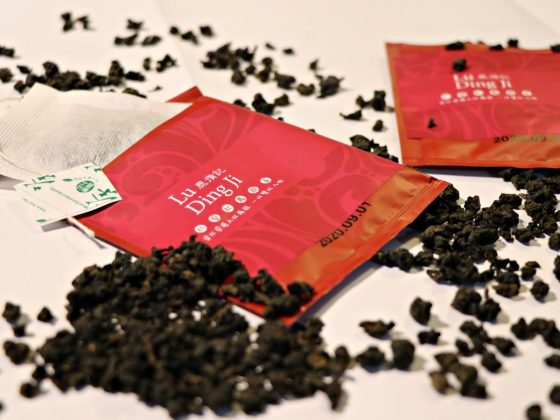Bicycles, computers, mobile phones and everything high-tech: These are what most people associate with the phrase Made in Taiwan. Taiwanese people are proud of their nation’s place in the high-tech world, but high-tech alone doesn’t define Taiwan. Indeed, a new generation of Taiwanese entrepreneurs are seeking to highlight Taiwan’s place in the natural world. Among those at the forefront of the growing “Grown in Taiwan” movement is a brand called Cha Tzu Tang.
Started in 1992 as a small company creating liquid soaps, Cha Tzu Tang has since expanded its product line to include a wide variety of naturally-made health, beauty and skin care products. What makes Cha Tzu Tang a leader in the Grown in Taiwan movement is the company’s commitment to working with local farmers to obtain the raw materials used in the creation and crafting of their products.
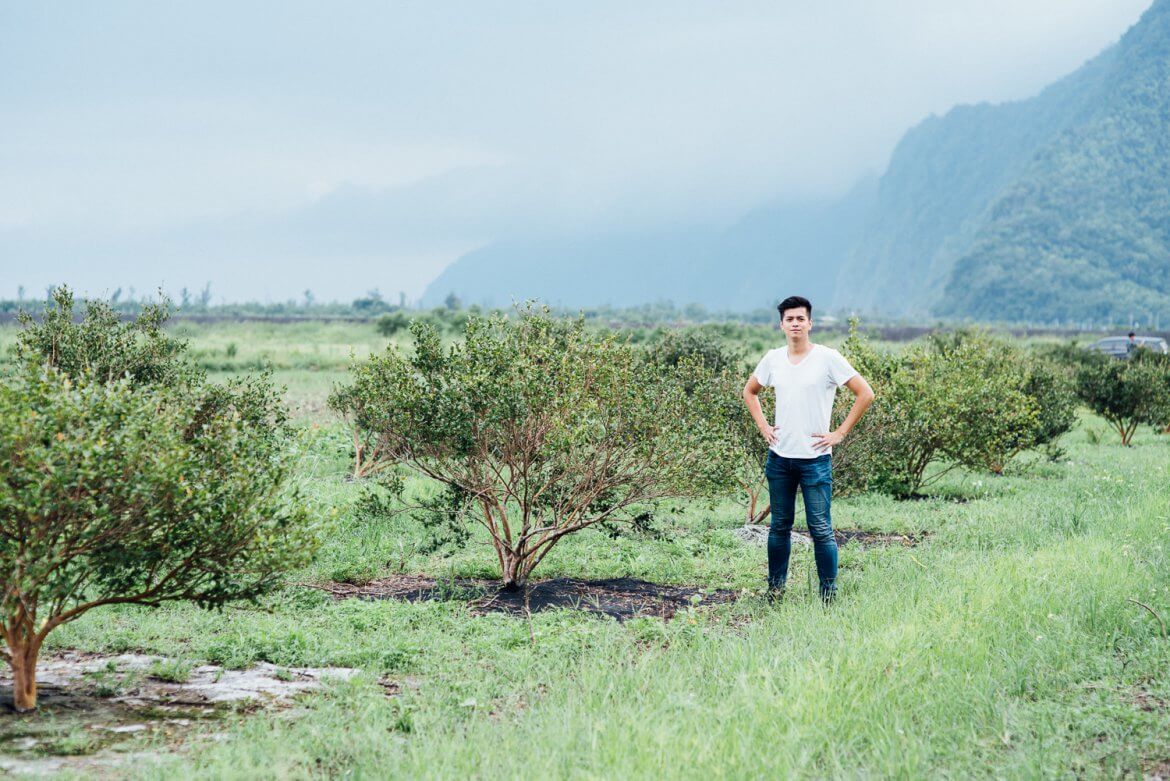
Taiwan Scene sat down with Wen Hao Chao (趙文豪), Founder of Cha Tzu Tang to talk about the company’s practices, philosophy, and travel through Taiwan’s more bucolic side.
TS: Could you tell us a bit about the background of Cha Tzu Tang?
CTT: Well, the business was founded by my father in 1992. Early on, were primarily focused on creating environmentally friendly cleaning solutions. My father retired in 2004, and I took over and started expanding Cha Tzu Tang to incorporate sustainable farming practices and promotion of Taiwanese agriculture into our business model. At about that time, my mother discovered some of the beneficial properties of locally grown Camellia, and we started putting that into some of our skin care products. Camellia has all sorts of interesting properties and health benefits, and we got good results. Pretty soon, we started incorporating other herbal and medicinal ingredients into our products, which expanded to include shampoos, body lotions and other skin care products.
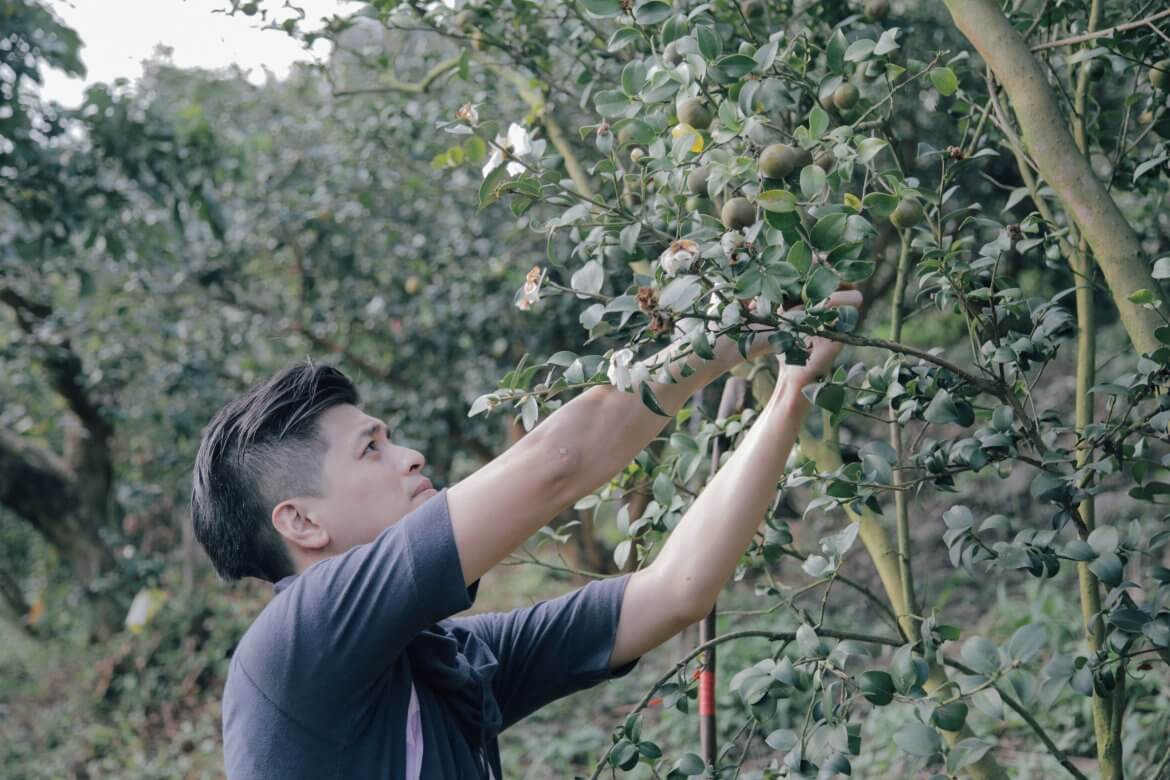
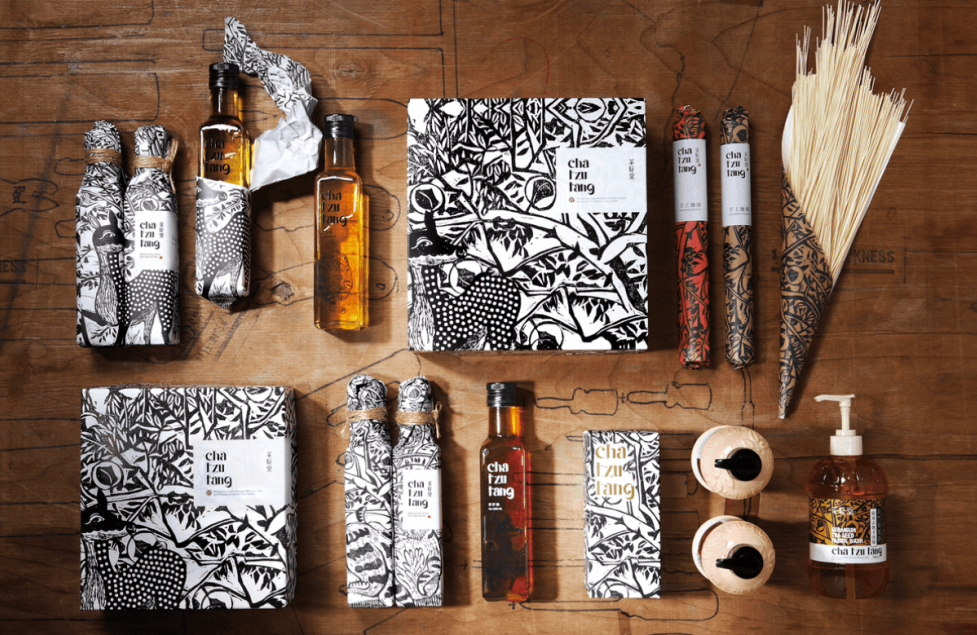
TS: One ingredient that’s prevalent in your products is Camellia Oil (苦茶油). We know that these are grown in Taiwan, but what specific benefits do they have?
CTT: While Camellia is grown elsewhere (particularly in Vietnam and China), Taiwan’s got a very different growing environment that produces a more complex and, in our opinion, more medically beneficial plant. Our Golden yellow Camellia oil contains monounsaturated fatty acids, vitamin E, and plant-derived squalane, making it a good source of natural nourishment for the skin. The high oleic acid properties of Camellia allow for superior absorption, helping the nutrients penetrate more deeply into the deeper levels of the skin. This makes it a very good base oil for various skin care products, like body lotion, hand cream and lip balm.
TS: What are some of other herbal and medicinal plants used in Cha Tzu Tang’s products?
CTT: We’ve recently been working with four very special plants that come from different parts of Taiwan. One of these is the Water Lily, which grows in Hualien’s Shoufeng township. The flowers of this plant are quite rich in collagen, which both moisturizes skin and inhibits melanin formation. Another is called Taiwan Incense Cedar Leaf. This plant is an excellent natural antibacterial agent which we find can reduce the appearance of wrinkles in the skin as well as reducing inflammation. It’s endemic to Taiwan, and we source ours from a farm in Donghe. Yunlin Cucumber is an extract that’s loaded with vitamins and has excellent moisturizing properties. And then there’s Lotus Leaf, which most people in Asia regard as food. Actually, it’s got medicinal properties as well, containing malic acid, grape acid and other ingredients that are very soothing for the skin. We get ours from a farm in Baihe(白河).
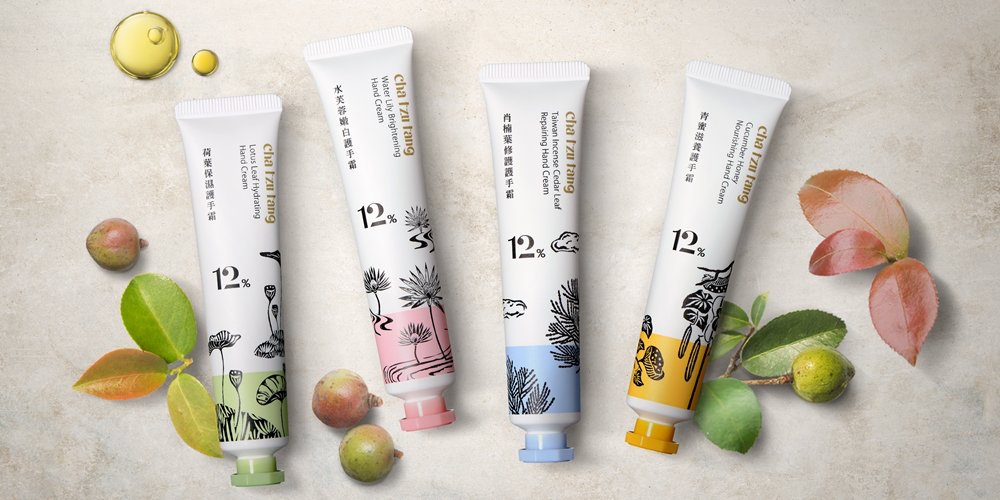
TS: It seems as if Cha Tzu Tang is working quite hard to promote Taiwanese agriculture. How are you going about this, and in what areas are you seeing the greatest success?
CTT: We’re always seeking ingredients that are unique to Taiwan. Part of the reason for this is that, as Taiwanese ourselves, we want to promote and support Taiwanese agriculture. But the fact is, Taiwan offers some of the best and most unique agricultural products in the world, so it’s only natural that we’d want to use them in our own products. But we’re looking to do more than just export Taiwan’s agricultural products. We’re also encouraging inbound tourists in Taiwan to bring our products back home with them after having experienced some of the culture and background behind our brand. One of the ways we’re making this happen is by placing our products in spots where they’ll be seen by international travelers. Hip hotels, Yong Kang Street, Eslite and other places where travelers tend to find themselves. Of course, Cha Tzu Tang products are at sold in the International Airport, since that’s definitely one spot we know travelers will pass through. So far the strategy is bearing fruit. We’ve been seeing good sales in the places where we’ve set up shop.
(Read more: Customized Souvenir Tips from Taiwan Scene)
TS: What about outside of Taiwan?
CTT: While we only have shops in Taiwan at the present time, we’re looking to expand internationally in the next few years. Our first target market is Japan. After that, who knows?
TS: We understand a key part of your business model is your work with contract farms. Could you tell us a bit more about how this works?
CTT: Basically, a contract farm is one that we work with on a deeper level than the usual buyer-seller relationship. We’ve approached a number of farms where the soil is no longer productive, usually due to over-planting or mono-cropping. After analyzing the soil with the farmers, we’ve provided them with free seeds, specifically for plants with regenerative properties. One of our contract farms is in Alishan, and had unfortunately been used to grow betel nut, which is pretty damaging to the soil. By planting the Camellia trees, the farmer was able to regenerate the soil, and we bought the resulting plants. We currently work with six contract farms around Taiwan in this way, encouraging our contract farmers to grow crops of higher value, providing the seeds and purchasing the products at a higher price. It offers us products of guaranteed higher quality, and gives the farmers a stable source of income. It’s win-win all around.
TS: Agricultural tourism is popular in Taiwan, both with locals looking to escape the city for a few days and, increasingly, international travelers. What places or activities would you recommend to folks looking to experience Taiwan’s more bucolic side?
CTT: Well, I love the Eastern coast, everything from Yilan to Hualien. It’s the breadbasket of Taiwan, really quite unspoiled and beautiful. You’ve got ocean views, mountains to climb, great cycling roads, traditional tribal groups to visit. And it’s also quite convenient to Taipei, which really surprises people who don’t realize that all of this scenic beauty is basically sitting 90 minutes outside of Taiwan’s most crowded city. If I had to pick spots I just love spending time in, I guess I’d say Yuli (in Hualien) and Nan’ao (in Yilan) . But really, the entire eastern part of Taiwan is pretty spectacular, both from the point of view of tourism and agriculture. We’ve worked with a number of small business in this area, helping them to open coffee shops, B&B’s that sort of thing, so we think that tourism in these areas is only going to grow.
TS: What are some must-try Taiwanese Agricultural items beyond the usual pineapple cake and dried fruits that people tend to bring home with them.
CTT: Well of course, we love it when visitors take our Cha Tzu Tang products home with them. We make a Taiwan Incense Cedar Leaf Repairing Hand Cream that’s particularly meaningful. Besides being made from locally grown plants, we like to think that the mild fragrance of incense will help people to remember their Taiwan experience. But really, there are so many things that are reminiscent of Taiwan that people can bring home with them.
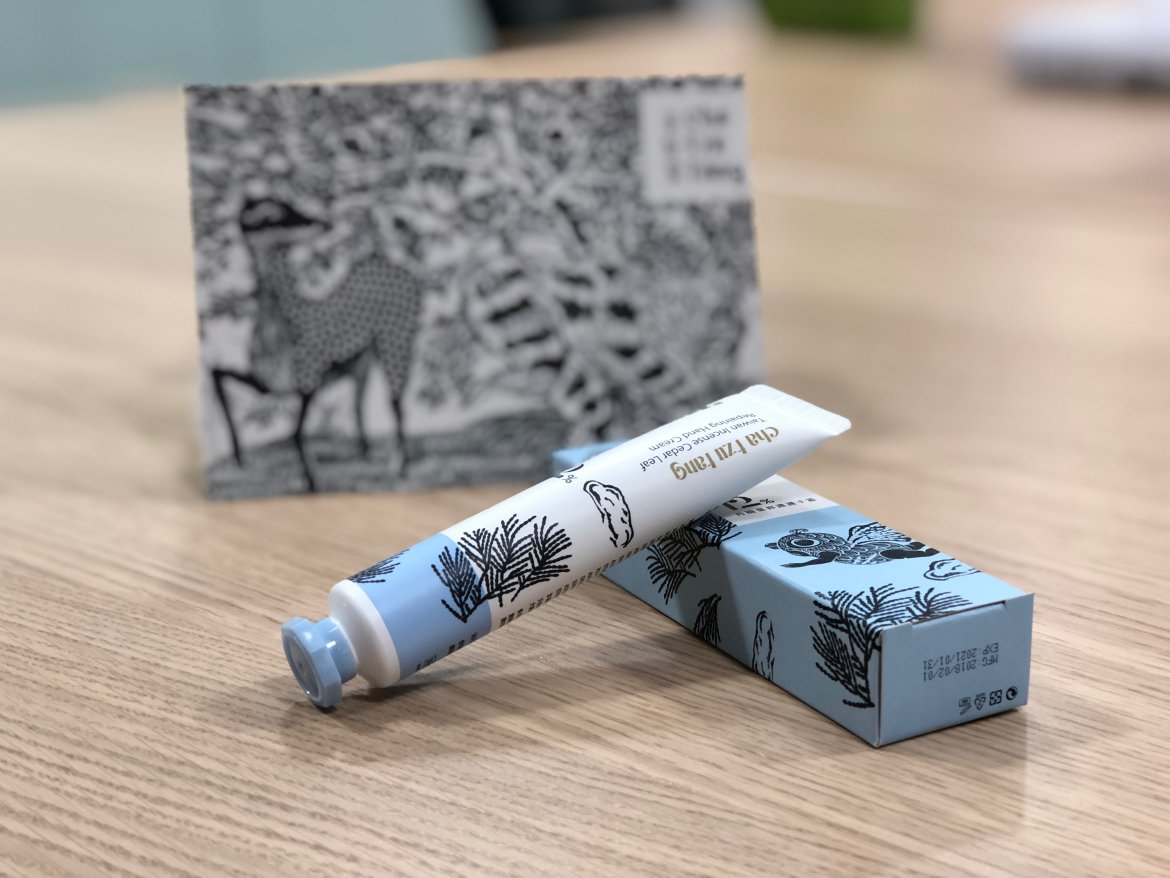
I recently I saw an item made from the remains of temple firecrackers that had been swept up and recycled into red envelopes that can be given as gifts. I found this really meaningful on a number of levels, representative of Taoism and Buddhism, which are still very active and plays an important role in Taiwanese society, and a very novel way to reuse and recycle the temple firecrackers, which of course represents Taiwan’s growing awareness of environmental protection.
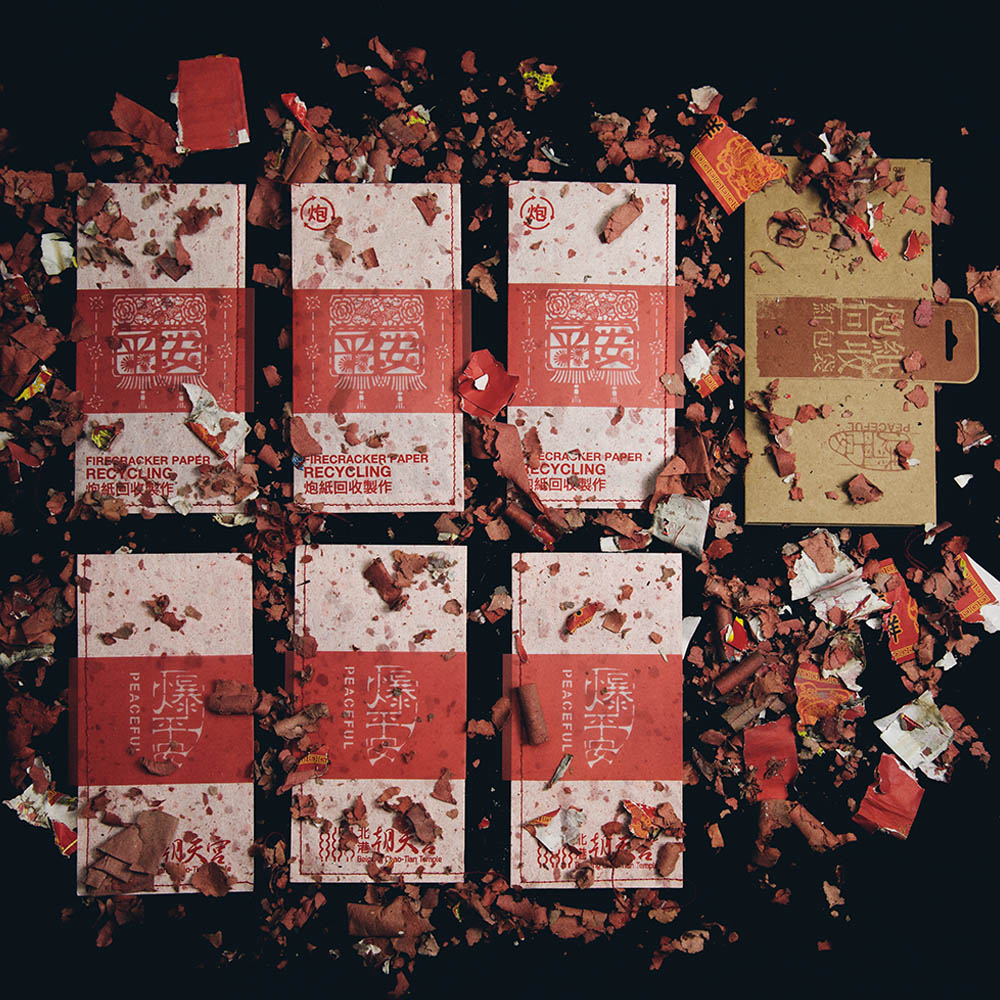
Of course, tea is always a great gift, but if you’re looking to go for something that’s got more of an intimate connection to nature, I suggest Grass Tea (雜草茶), which is made from various local herbs like Mimosa含羞草, Long Suimu長穗木, Moon Peach月桃, Sweet Beads 甜珠草. They make a very different, super healthy tea that’s definitely a good way to experience the Grown in Taiwan spirit wherever you are.
https://www.facebook.com/weedroot/photos/a.901196336659856/961265797319576/?type=3&theater
Visit Cha Tzu Tang online:http://www.chatzutang.com


